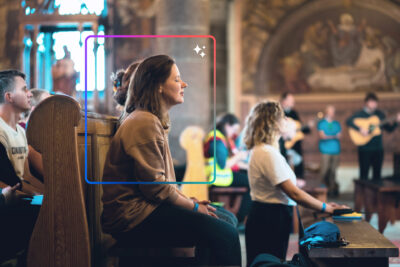
5 Areas of Church Security That Need Your Attention
People are trusting the church to get church security right, and we can’t afford to let them down. Here are church security areas we need to nail.
When it comes to running a church, security is important.
Seems like an obvious statement, right?
And yet, you still hear spine-chilling stories about accidents and criminal activities that wouldn’t have happened if the church took the issue more seriously.
People are trusting the church to get this right, and we can’t afford to let them down.
Here are five areas of church security that we need to take seriously:
1. Child security
Nothing is more heartbreaking than hearing about a child hurt or abused at church. We need to excel at taking care of the most vulnerable among us. If we can’t do that, shame on us.
This means we really need to nail down…
- Check-ins: I’ve talked to churches with rather lax standards for checking in children, and it often boils down to feeling like their children’s ministry isn’t big enough to warrant that kind of red tape. The truth is that even if you have only one child in your kids’ ministry, you have enough children to justify tight security.
- Background checks: Do a background check on everyone who is helping out in children’s ministry. This is not an area to make exceptions. A child should never be hurt because we neglected to ensure the people ministering were trustworthy.
2. Facility security
This is another area where I find churches making strange mistakes. You would be surprised at the number of churches who have state-of-the-art security systems, but they don’t use them for a number of reasons:
- They’ve forgotten the security code.
- They haven’t kept up payments to the security company.
- Security codes got lost in a staff change.
- It seems like too much of a hassle.
Whatever the reason, don’t be negligent here. If people come to the church in the off hours, they need to know that the building is secure. But it’s not only their personal safety you want to consider. There is also the issue of protecting resources.
Don’t risk having expensive equipment stolen or the church vandalized because you haven’t bothered to secure the premises. In the end, the money you “save” on security won’t add up to the damages you’ll pay without it.
Don’t forget that securing the facility also means that you’re paying attention to details like whether the parking lot is well lit or window locks are working.
3. Financial security
There are a lot of ways that finances can be mishandled in churches. I know pastors whose Sunday deposits have been lost or stolen. This is particularly dangerous when you’re dealing with a lot of checks and cash every week. Having strict money handling rules is a must.
Even better than that, consider moving away from cash and checks. If you train your church to give through a mobile app, you mitigate a lot of the problems that come with having lots of cash lying around.
Using a solution like Pushpay not only transitions you away from reliance on checks and cash, but also brings you into a new world of security. Payments are logged and encrypted on secure servers and monitored with the highest security standards.
4. Informational security
Your members are entrusting you with personal details and information. If you have a database or any other software where you are storing information (e.g., church management software, emails, check-in areas, etc.), make sure it’s secure.
- Make sure that the only people who have access are people who need it.
- Change passwords frequently, and ALWAYS change passwords when a staff member leaves their position.
- Keep up-to-date and compliant with your software.
5. Sensitivity and awareness
One of the most important areas to make sure people feel secure is also one of the most difficult to monitor accurately. People need to feel personally and emotionally safe. This means that women shouldn’t feel like they’re going to be the victims of unwanted attention, minorities aren’t going to feel unwelcome, and people with disabilities aren’t going to feel like second class citizens.
Churches have a hard time in this area because drawing attention to it is often seen as being “politically correct.” That’s just not the case. There are a lot of security woes that people will forget, but they’ll never forget the ways that they were made to feel unsafe or uncomfortable.
As silly as it may sound, your staff needs to know what is and is not appropriate. If that means subjecting them to some sensitivity training, so be it. In the long run, they’ll not only benefit from it personally, but they’ll learn to recognize potential problems in the church before they become disasters—or lawsuits.
Better Early Than Late
We don’t tend to take security issues seriously until something bad happens, but we can’t afford to think that way. It’s better to have security you’ll never need than to need security you never had. Start firming up your security today!





